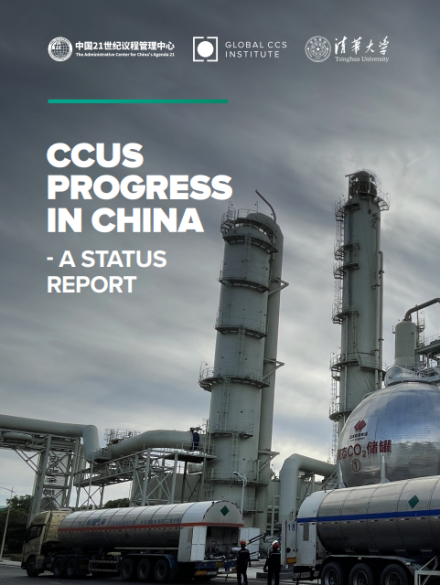Stay connected. Have an impact.
Be part of the global CCS conversation. Stay informed, share ideas, and help shape the future of carbon management through collaboration and action.
Dive into our reports and publications for the latest thinking on CCS. Explore trusted research shaping decisions across policy, investment, and deployment.

The Global CCS Institute’s latest report, Cost of CO₂ Storage, explores how geological and operational factors influence storage costs. It finds that boundary conditions (whether a reservoir behaves as an open or closed system) are the key determinant, shaping the economics of CO₂ storage and informing scalable, cost-effective deployment strategies.
Search

18 July 2023
This report outlines CCS milestones ahead of COP28, including IPCC AR6 insights, political positioning via G7/G20 and the Carbon Management Challenge, IEA credible pathways, and Bonn Conference outcomes. It highlights opportunities to advance CCS deployment during this critical decade of climate action.

11 July 2023
This report examines India’s carbon credit trading scheme and CCUS developments, highlighting policy frameworks, research initiatives, and national climate ambitions. It assesses how these measures support domestic emissions reductions, drive CCUS deployment, and strengthen India’s climate leadership, including through G20 engagement and updated NDCs.

6 May 2023
Published on 20 March 2023, the IPCC AR6 Synthesis Report underscores the importance of CCS in mitigating climate change. This brief from the Global CCS Institute highlights key takeaways on how CCS supports international climate targets.

17 March 2023
Read the Institute's latest publication, which highlights CCUS progress in China.
China has made significant progress in CCUS technology development in recent years and has acquired the capability to design and demonstrate large-scale CO2 capture, transport, utilisation and storage systems.
This latest report, written in collaboration with Tsinghua University and the Administrative Centre for Agenda 21, provides an overview of CCUS policy development, and provides relevant policy recommendations aimed to support the scale up of CCUS in China.
With the English version of the report released on March 17, the publication is also now officially available in Chinese from July 10 onward.

27 July 2022
This paper examines the economics of direct air carbon capture and storage (DACCS), showing its potential as a backstop technology to reduce decarbonisation costs. It highlights impacts on energy systems, industry, and policy needs for incentivising near-term mitigation while supporting DACCS development.

7 July 2022
The Institute’s report from the Bonn Climate Change Conference (June 2022) highlights CCS-relevant outcomes, including the Global Stocktake and Article 6 negotiations. It outlines key insights and next steps toward COP27, supporting the role of CCS in achieving Paris Agreement targets.

9 June 2022
This report explores how project proponents and investors can leverage ESG frameworks to report CCS activities effectively. It presents a CCS-specific methodology aligned with leading schemes, highlighting pathways to improve reporting quality, utility, and harmonisation within the evolving ESG landscape.

17 May 2022
With the emergence of Carbon Capture and Storage as an essential tool to limit climate change impact and reduce emissions from energy intensive industries, interest in CCS has been growing at an unprecedented rate in recent years.
As a result of the key role played by CCS in the energy transition towards a net-zero future, the economic performance of CCS is becoming increasingly important and technology development fundamental to meet the demand for improved CO2 capture systems, transport costs and storage options.
In our inaugural Technology Compendium, authored by Dr. Nouman Mirza and Dr. David Kearns, we take a look at a wide range of commercially-available CCS technologies around the world and analyse technology developments in the context of CO2 capture, transport, storage and the full value chain.

27 April 2022
The IPCC’s ‘Mitigation of Climate Change’ report highlights CCS as a vital solution for limiting global warming. This brief unpacks its emissions mitigation potential across sectors, links to the UN Sustainable Development Goals, and regional deployment considerations.

13 October 2021
Carbon capture and storage (CCS) continues to make significant progress around the world against a backdrop of greater climate action from countries and private companies. The Global Status of CCS 2021 demonstrates the critical role of CCS as nations and industry accelerate to net-zero.

5 October 2021
CCS networks connecting emissions sources to storage hubs are the most cost-effective deployment method. This report, part of the Circular Carbon Economy series, analyses global emissions and storage basins, identifying potential networks. It outlines CO2 transport design, cost minimisation, and highlights storage availability, technical feasibility, and the need for national assessments and localised pipeline cost models to guide CCS network development worldwide.

23 July 2021
CCS is a mature, commercially available technology essential for net-zero and limiting warming below 2°C, requiring a 100-fold capacity increase by 2050. This report reviews policy, legal, and financing factors affecting CCS investability, and provides recommendations for governments to facilitate private sector investment through frameworks, policy, and regulatory measures.